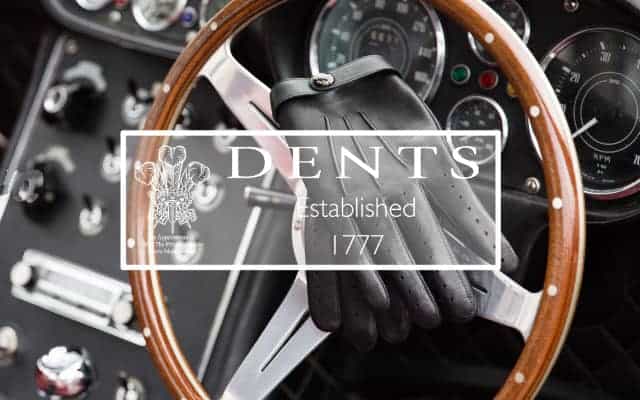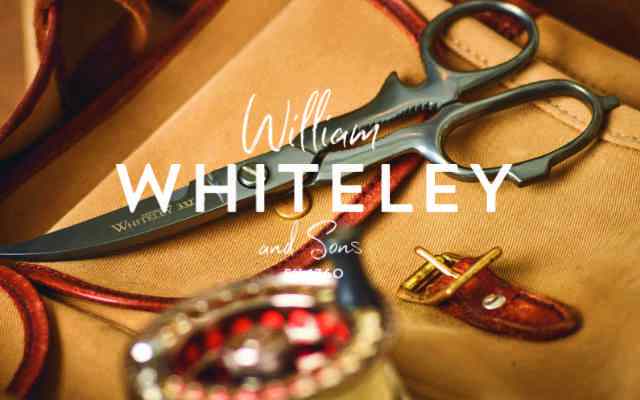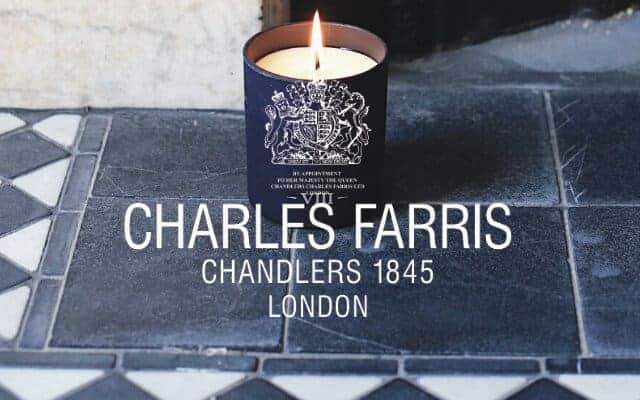A Nation of SHOPKEEPERS
Did Napoleon say the English were a nation of Shopkeepers?

Where did the A Nation of Shopkeepers Phrase come from?
That damning term that Napoleon Bonaparte was purported to have uttered, “L'Angleterre est une nation de boutiquiers”, alluding to a nation of little ambition who were far too concerned with commerce to be a match for his army. If he was talking about the Arkwrights and Granvilles, then yes, they, their brooms and brown shop coats would be no match for his land forces. But it may not be quite so snide as it is seen to be. And although general knowledge quizzes will say that Napoleon was the first to utter this phrase, it actually has roots much farther back.
As far back as 1766 actually. Joshua Tucker, who was the Dean of Gloucester had a slightly different slant on the phrase, “And what is true of a shopkeeper is true of a shopkeeping nation”. 10 years later in 1776 in his opus The Wealth of Nations, Adam Smith writes "To found a great empire for the sole purpose of raising up a people of customers may at first sight appear a project fit only for a nation of shopkeepers. It is, however, a project altogether unfit for a nation of shopkeepers; but extremely fit for a nation whose government is influenced by shopkeepers."
This extract from The Wealth of Nations was expressed because unlike most nations whose governments were still influenced by Dukes, Lords and Kings the British government was influenced by the merchant class. The merchant class that cajoled the Government to support their trading expansion across the globe with military might.
Which only proves that this phrase was doing the rounds and in common parlance during the late 18th century. And in fact the figure of a shopkeeper was analogous of the nation as a whole in the early years of the British Empire.
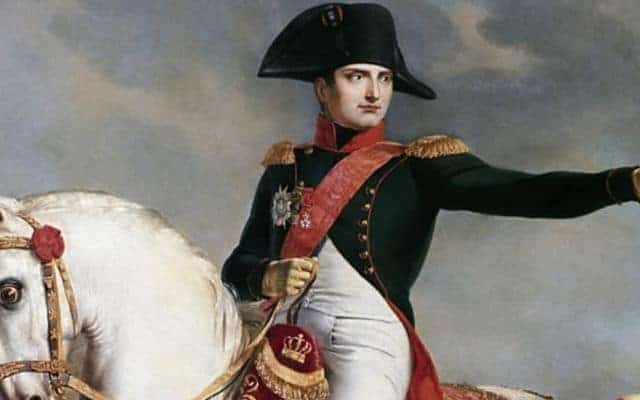
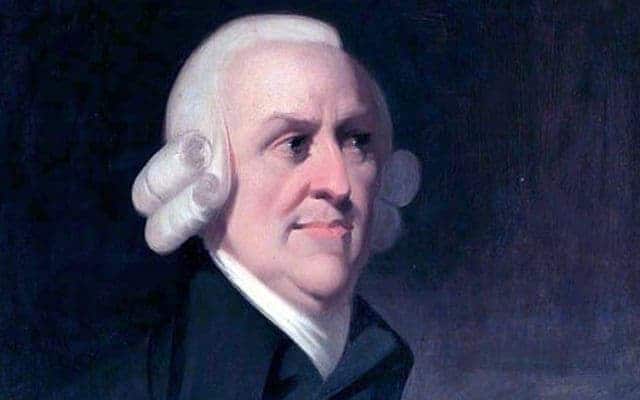
But did Napoleon call the English a Nation of Shopkeepers?
Going back to Napoleon’s claim to saying the phrase. There are no actual contemporaneous French newspapers that mention this and in fact Napoleon would have been a fairly unknown officer in the French army and with little political sway during that period when he is supposed to utter it. What we do know is that Bertrand Barère de Vieuzac, the French revolutionary who Napoleon knew, used the phrase in 1794 at The National Convention “Let Pitt then boast of his victory to his nation of shopkeepers” this was during the French Revolutionary Wars. It is then thought that the English press during the Napoleonic Wars attributed it to the French as a whole or Napoleon who symbolised the French.
Later in life according to Barry O'Meara an Irish surgeon and Napoleon’s companion whilst he was in exile in St Helena Napoleon cast doubt himself in actually saying those immortal words of damnation of the English. In fact he claims that if he had said that phrase it would have meant a good thing not a nation of cowards. What Napoleon meant, according to O’Meara who conversed with him in Italian ‘I meant that you were a nation of merchants, and that all your great riches, and your grand resources arose from commerce, which is true. What else constitutes the riches of England. It is not extent of territory, or a numerous population. It is not mines of gold, silver, or diamonds. Moreover, no man of sense ought to be ashamed of being called a shopkeeper.’ In fact, Napoleon states that it is this enterprising attitude “l’esprit des Anglais” which powered the British economy.
What makes these comments closer to the truth of the saying is that although England had half the population of France, it had a higher per capita income, which meant a greater tax base and a continuous one at that. Which in turn meant that it could financially sustain a war of attrition, as it did during the Napoleonic Wars and the defeat of Napoleon at Waterloo.
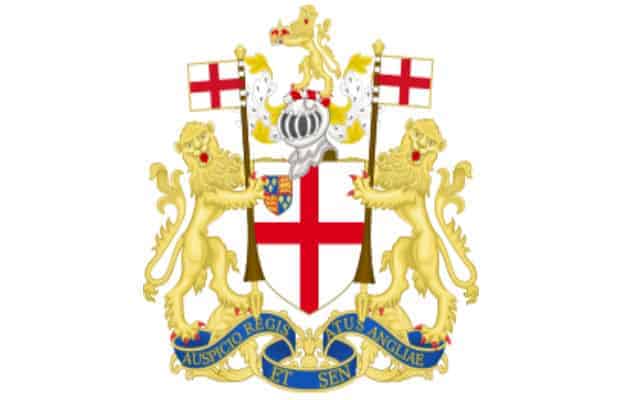
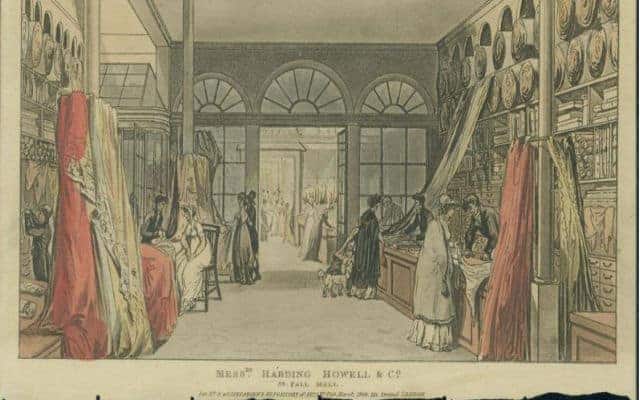
The Rise of the Merchant Class
But why was this disputed phrase even levelled at the English, whether disparaging or not?
It does seem as if it may have something to do with the rise of the merchant class, the East India Company and Britain’s insatiable lust for goods from the Far East and North America. We do know that Benjamin Franklin had a similar idea about the Dutch; in a letter from 1781 he noted ‘Some writer, I forget who, says that Holland is no longer a nation but a great shop and I begin to think it has no other principles or sentiments but those of a shopkeeper.’ This of course could be attributed to VOC, The Dutch East India Company being the first trading company, from whence the British East India Company got its business model. There may also be some sour grapes as the French hadn’t become the global leaders when it came to mercantile endeavours. It’s downfall came when the French East India Company was defeated by British Forces and Indian Princes in India and also at the same time in North America. And the Compagnie Française pour le Commerce des Indes Orientales (its full name) went bankrupt in 1794, the year Bertrand Barère de Vieuzac made his speech at the National Convention.
The Birth of Consumer Culture
With this the perfect commerce storm was brewing in Britain creating a consumer class, which self-proliferated a larger merchant class which in turn created a consumer society. Where Napoleon called us a nation of shopkeepers, what he really was alluding to was a nation of merchants and consumers. Consumer culture was the turning point, with the East India Company turning shopping from a humdrum activity into a pleasurable pursuit. With industrialists such as Josiah Wedgewood and Matthew Boulton pioneering mass marketing techniques previously unheard of and utilising new manufacturing techniques from the exploding industrial revolution.
What was the First Department Store?
With all these goods coming from the Orient and North America through the British East India Company, the industrial revolution creating mass production and a burgeoning consumer class there was needed a place to sell and buy all of these goods. Every high street had certain specialist stores; the butcher, the baker, the candlestick maker but there was a growing need to feed this new pleasurable pursuit. The beginnings of the department store were being sown. But what was the first department store? Some believe it to be Bennett’s of Derby (no relation) in which was founded in 1734. Bennett’s grew from a humble ironmongers into a mecca of goods, which is still, to this day, trading in the same building. Officially though the first department store was Harding, Howell & Co which opened in Pall Mall in 1796. As the pursuit of happiness through shopping grew arcades appeared. Such as the classic Royal Opera Arcade which opened in London 1818 and hot on its retail tail was the Burlington Arcade which is still patrolled by The Burlington Beadles; the top hatted security guards. But arcades were not just appearing in London, Cardiff took to arcades like a Welshman takes to singing and have no fewer than 7 elegant arcades and is sometimes called the City of Arcades.
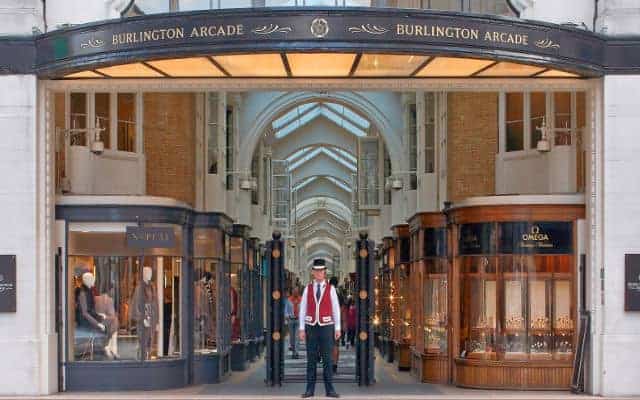
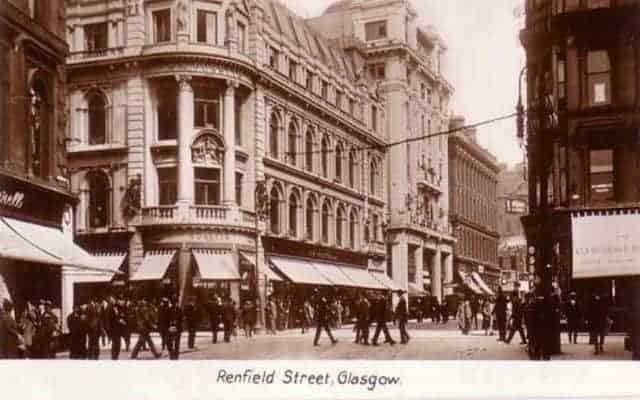
Cathedrals of Consumerism
These palaces grew in size and grandeur to become Cathedrals of consumerism. The opening of Harrods, Kendals of Manchester, Liberty’s of London, Watts of Glasgow and in almost every town across Britain rose a magnificent landmark building.
So, did Napoleon utter those immortal words or not? And if he did, were they disparaging or not? Well it doesn’t really matter. At Sir Gordon Bennett we believe we are a nation of shopkeepers, a nation of merchants. The birth of consumerism for good or bad took its first steps on these shores. We are proud to call ourselves a ‘Shopkeeper’ at Sir Gordon Bennett, supporting British craftsmen and women in the pursuit of beautiful objects that are made well, work better and last longer.
Click on the images below and be taken to brands that were around when commerce began in earnest.


